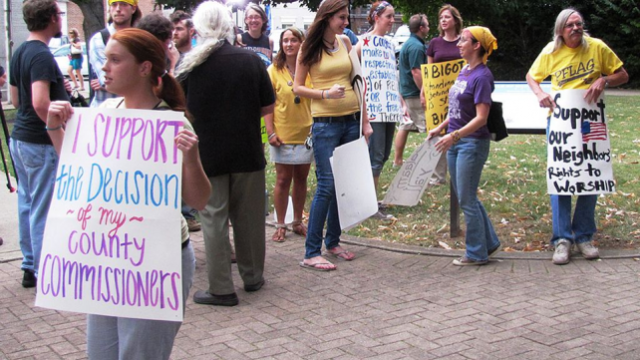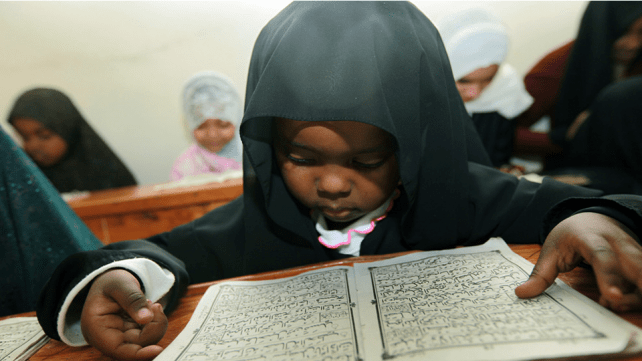Religious Freedom in Public Schools

By Sound Vision Staff Writer
How much can Muslim parents and students ask public schools to accommodate? Here are some things which can clarify the issue:
1. The Clinton directive
Former U.S. President Bill Clinton instructed then Education Secretary Richard Riley to provide every school district in the United States with a statement of principles in 1995.
This statement discusses how far religious expression and activity are allowed in public schools.
Some of the important aspects of this statement of concern and interest to Muslim students and their parents are:
a. Student prayer
Students can take part in individual and group prayer during the school day. They can also pray in a “nondisruptive manner” when they are not participating in school activities or are being taught.
b. Religious discussion
In “informal” settings like cafeterias and hallways, they can pray and discuss their religious views. They can even persuade peers about religious topics like they would political topics. But school officials should step in to stop any speech that is considered harassment aimed at a student or a group of students.
c. Rules for school administrators and teachers
School administrators and teachers, when acting in those capacities, are not allowed soliciting or encouraging religious activity and are prohibited from participating in this kind of activity with students.
They are also not allowed to discourage an activity because it is religious, nor can they solicit or encourage anti-religious activity.
d. Teaching about religion
Public schools are not allowed to teach religion, but they can teach ABOUT religion. They can teach subjects like the history of religion, the role of religion in U.S. history and that of other countries’ histories.
No one religion would be favored in a public school system.
e. Talking about religion in school assignments
Students are allowed to express their beliefs about a religion in homework, artwork and other assignments. Teachers are required to evaluate this work based on academic standards.
f. Distributing religious literature
Students can distribute religious literature to schoolmates. Schools can impose restrictions on distributing this kind of literature as they do on other literature that is not school-related.
g. Religious excusals
While this is subject to state laws that apply, schools can excuse individual students from lessons which are objectionable to the student or their parents on religious grounds. However, school officials cannot encourage or discourage students of taking advantage of this option.
h. Religious dress
Schools cannot stop students from wearing head scarves or other clothing related to religious practice under the Religious Freedom Restoration Act. Students can also have religious messages on clothing in the same way they are allowed to display non-religious messages on clothing.
2. From the Freedom Forum First Amendment Center’s “A parent’s guide to religion in the public schools”
a. Praying together
Students are permitted to pray alone or in groups, as long as the activity is not disruptive and doesn’t infringe on the rights of others.
These activities have to be voluntary and initiated by the students. Students do not have the right to force a “captive audience” to participate in religious exercises.
b. Religious holidays
According to John Ferguson, Religious Freedom Analyst with the First Amendment Center, getting a day off school for a religious holiday is a right that would fall under the First Amendment. However, he also noted that most schools in the U.S. make a provision for religious holidays as “excused absences”. Students would be allowed to make up their school work, for example, for the missed day of class.
Parents and/or the student should approach the teacher beforehand to indicate absence for a religious holiday.
c. Religious clubs
Under the federal Equal Access Act, secondary public schools that receive federal funds have to allow students to form religious clubs if the school permits other clubs that are not related to the school curriculum to meet outside of class time.
These clubs may have access to school facilities and media the same way other non-curriculum-related student clubs do. Outside adults are not allowed to direct or attend meetings of these clubs on a regular basis. Teachers can attend the meetings of religious clubs as monitors, but they may not participate in these clubs’ activities.
Public schools are allowed to forbid any club activities which are illegal or would cause substantial school disruption.


